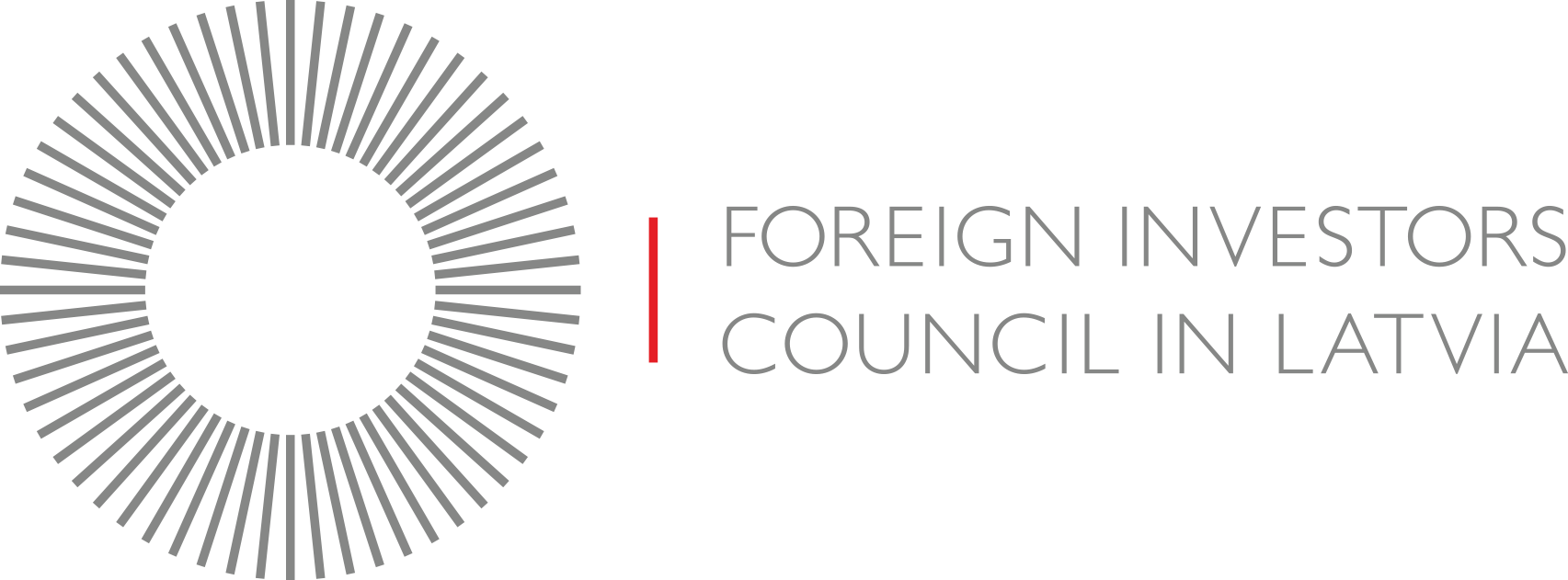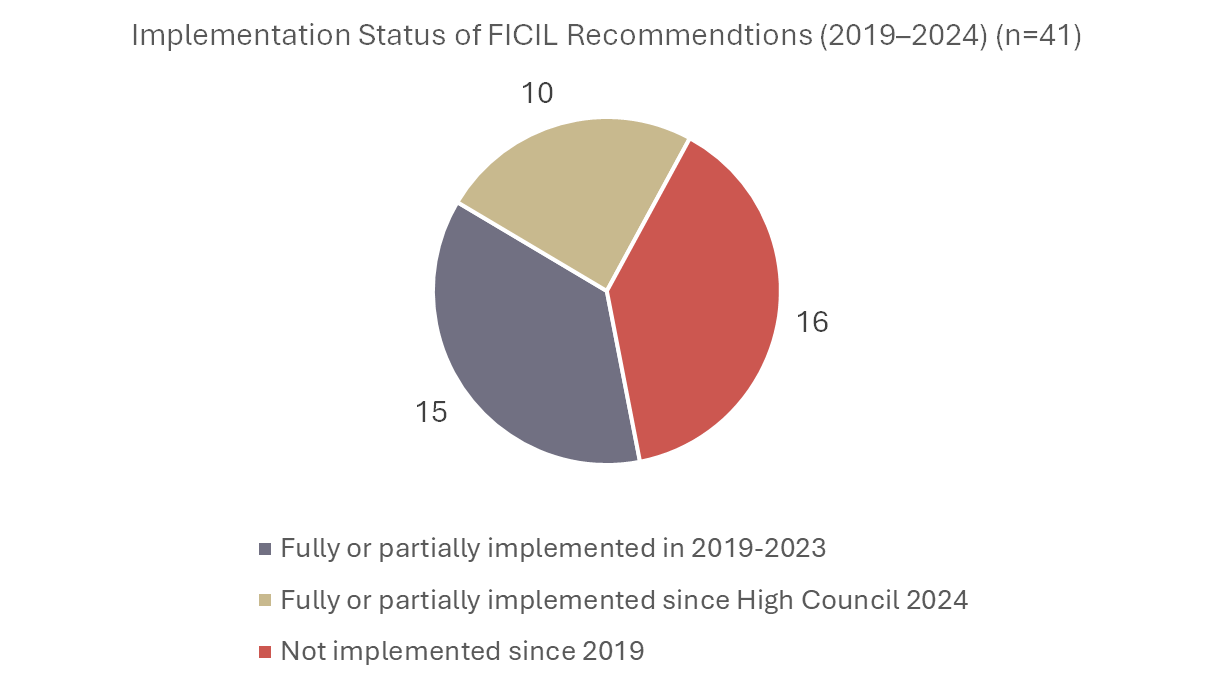Public sector modernisation has long been a cornerstone of FICIL’s agenda, reflecting its direct impact on the quality of governance, investment climate and institutional performance in Latvia. Since 2019, the working group has put forward 41 recommendations, aimed at improving efficiency, strengthening accountability, and increasing the public administration’s capacity to deliver results. To date, 61 % of these recommendations — 25 in total — have been either fully or partially implemented. Since the previous High Council in 2024, 10 recommendations have been partially implemented, which indicate measurable progress. Most of these stem from the 2024 position paper, with 6 partially implemented.
Over the past year, the government has taken steps that formally advance several public sector modernisation initiatives. This includes continued work on digitalisation, shared services, administrative streamlining, improving coordination between institutions, and the rollout of performance-based budgeting.
FICIL appreciates the progress that has been made, particularly the government’s efforts to strengthen administrative efficiency and reduce unnecessary bureaucracy. However, implemented measures frequently fail to reflect substance of the original recommendations and either do not translate into a practical change or have a very slow pace of implementation. Such dynamic highlights a critical issue: without a clear strategic vision on modernisation of the public administration and political ownership the reforms will remain limited in nature and implementation is likely to be undermined, resulting in a limited impact.
Reinis Āzis: “The public administration reform continues to lack a strong leadership, given a limited willingness and readiness of the policymakers to introduce systemic and necessary changes. In view of foreign investors, the performance-based budgeting is absolutely critical for boosting effectiveness, efficiency, productivity, accountability and transparency of the public sector, as it requires a clear definition of aims, resources committed, progress checks and responsibilities assigned. However, the weak progress on its implementation and a strong opposition to it within the public administration reveals that even if the reform will be introduced on paper, it is not likely to become a real management and transformative tool, driving a meaningful change in the public sector. Currently, Latvia, and the EU generally, are in a trying period – there is no time and no resources to sustain an illusion of action and progress. Good governance, effective management of the public administration is a key for unlocking investments, finding resources, which could be reallocated to most needed sectors, signaling to the local population and to the investor community the ability to find solutions, to coordinate actions even in challenging times.”
Renārs Rūsis: “In terms of digitalisation of the public administration in Latvia, over the last year we have observed a step forward — new digital tools, better coordination and some progress in streamlining processes across institutions. However, we must admit that the speed of the progress is sub-optional and not even across the public sector institutions. Digitalisation is a powerful tool, which could transform old structures, thereby reducing bureaucracy, freeing up time of public sector employees for other important tasks, and decrease costs for both users and public administration. The foreign investors feel that there are many underutilised opportunities in the area of digital technologies, which, at start, might require investments, yet will yield much higher long-term returns in terms of effectiveness and efficiency.”



